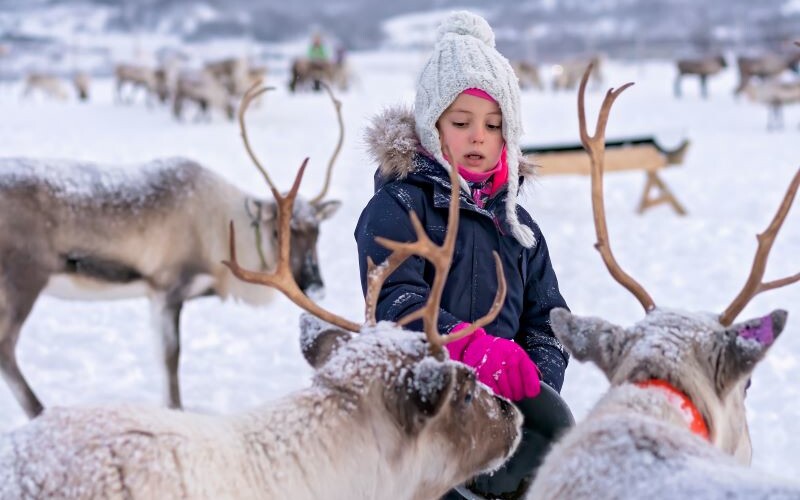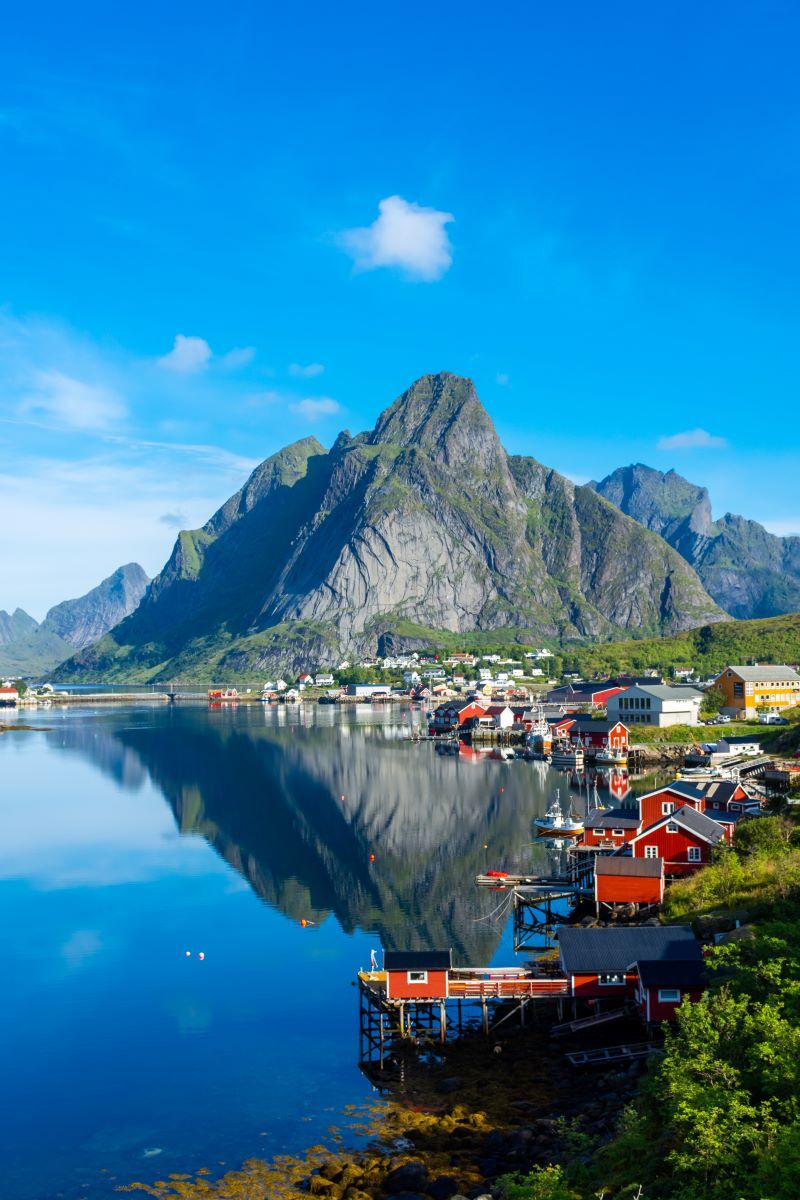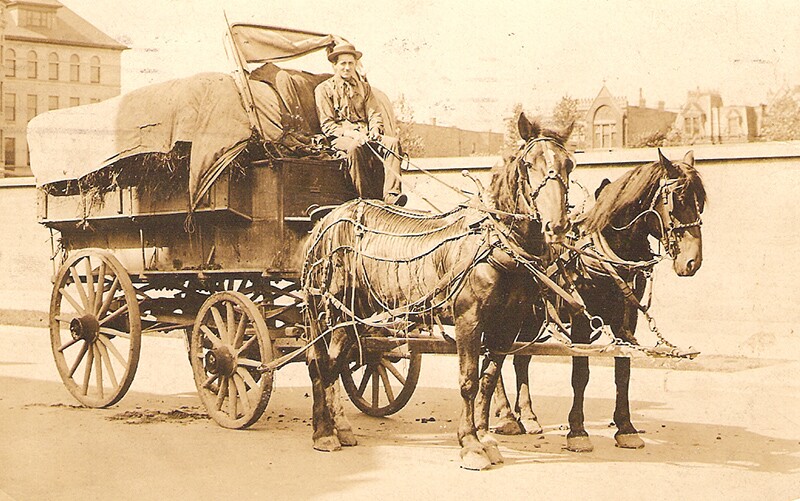More and more people are naming their children according to what they find in their family trees. Names such as Sofie and Jakob have topped name lists in recent years for popular Norwegian baby names; interestingly, those were also the most popular names at the turn of the century in the early 1900s.
Choosing names of significance for your children can give them confidence and joy in knowing that they have something to strive for and live up to—the honor of their ancestors.
In addition to the meaning and significance of your or your baby's first name, your family surname also has a fascinating origin story.
What Is a Norwegian Name?
Norwegian names have been inspired by numerous factors over a long period of time. Old Norse mythology, Scandinavian roots, Viking heritage, and Christian traditions have all influenced the names that are popular in Norway. Today, a blend of names—traditional and modern—is used in Norwegian culture and has spread throughout Europe and beyond.
Norwegian Female Names

Here are some of the most popular and interesting Norwegian baby names for girls, along with their meanings.
Áile
Meaning: holy
Áile is a traditional Sámi name. It comes from the Old Norse word heilagr, which means "holy" or "blessed."
Bodil
Meaning: remedy, battle
Bodil comes from the Old Norse Bóthildr, which is made up of two Old Norse words: bót, meaning "remedy," and hildr, meaning "battle."
Elsa
Meaning: my God is my oath
Elsa is a shortened form of the name Elisabeth. There are several creative variations of this name in Norway: Elise, Ella, Lill, Lisbet, Lise, and Liss, just to name a few.

Gunhild
Meaning: war, battle
Gunhild comes from another Old Norse name: Gunnhildr. Gunnhild is the name of a Norwegian queen who lived in the 10th century. She appeared in many Icelandic sagas and was known as "Mother of Kings."
Hedvig
Meaning: battle, combat, war
Hedvig is the Norwegian spelling of the German name Hedwig. It is also the name of a German saint from the 13th century and a Polish queen from the 14th century. Hedda is a common nickname for Hedvig.
Ingeborg
Meaning: help, save, rescue
Ingeborg comes from the Old Norse name Ingibjǫrg. Another Norwegian spelling for this name is Ingebjørg.
Johanna
Meaning: God is gracious
Johanna is the feminine form of Johannes, which comes from the Greek Ioannes. Other Norwegian names that also come from Ioannes include Hanna, Johanne, Janne, Jannike, and Nina.
Kari
Meaning: pure, blessed, fortunate
Kari is a shortened form of Katarina, which comes from Katherine. Some other Norwegian nicknames for Katarina include Katrine, Kaia, Ina, Karin, and Katja.
Kjersti
Meaning: follower of Christ
Kjersti is a form of the name Christina, which is the feminine form of the name Christian.

Linnea
Meaning: beauty, strength, rejuvenation
The name Linnea comes from the Linnaea flower. This flower was the favorite flower of Swedish botanist Carolus Linnaeus, so he named it after himself.
Maren
Meaning: pearl, of the sea
Maren is a diminutive form of Maria. It is also related to the name Marina, which was borne by some early Christian saints.
Marthe
Meaning: the lady, the mistress of the house
Marthe is the Norwegian form of Martha. This name has Aramaic origins and appears in the New Testament.
Signe
Meaning: new victory
Signe comes from the Old Norse words sigr (victory) and nýr (new). It can also be spelled as Signy or Signý.
Solveig
Meaning: strong home
Another Old Norse name, Solveig comes from the words sól (house, or a hall) and veig (strength, to fight, being capable of fighting).
Tove
Meaning: thunder; beautiful, beloved
Tove is a shortened version of the Old Norse name Þórfríðr. The elements making up the name are Þórr, which means "thunder" (which is where the name Thor comes from), and fríðr, which means "beautiful."
Norwegian Male Names

Here are some interesting Norwegian baby names for boys, as well as their meanings.
Aksel
Meaning: father of peace
Aksel is derived from the Hebrew name Absalom. It embodies a peaceful and harmonious disposition.
Bjørn
Meaning: bear
Bjørn has Old Norse origins. It can also be spelled as Björn or Bjarne.
Casper
Meaning: treasurer
Casper is the Scandinavian form of the name Jasper, which comes from the Old Persian word ganzabarah. Other Norwegian variants of this name include Jesper and Kasper.
Emil
Meaning: rival or industrious
Emil comes from the Roman surname Aemilius, which comes from the Latin word aemulus (rival).

Felix
Meaning: lucky, successful
The name Felix was used as a nickname in Roman times, added to the names of successful military leaders. Many early Christian saints and 4 popes bore this name.
Henrik
Meaning: home ruler
Henrik is the Norwegian form of the Germanic name Heinrich. Heinrich became Henry in France and even Harry in many other countries, including England, the Netherlands, Finland, and Estonia.
Isak
Meaning: he will laugh; he will rejoice
Derived from the Hebrew name Yitzhak, Isak signifies joy and happiness.
Jakob
Meaning: supplanter; holder of the heel
Jakob is derived from the Hebrew name Yaakov, which refers to the biblical figure Jacob. It signifies someone who supplants another person or who holds on to something firmly.
Kristoffer
Meaning: to bear; to carry
Kristoffer is the Scandinavian form of the name Christopher. Early Christians adopted this name as a symbolic way of carrying Christ in their hearts.
Leif
Meaning: descendant, heir
Leif comes from the Old Norse name Leifr. A famous Norse explorer who reached North America in the 11th century was named Leif Eriksson.

Magnus
Meaning: great, mighty, powerful
Magnus conveys greatness, might, and power. This name was held by 6 kings of Norway and 3 kings of Sweden.
Martin
Meaning: warlike or dedicated to Mars
Martin is derived from the Latin name Martinus, which has ties to Mars, the Roman god of war. It represents bravery, valor, and martial qualities.
Nils
Meaning: victory of the people
Nils is the Scandinavian form of Nicholas, derived from the Greek words nike (victory) and laos (people).
Olaf
Meaning: ancestor's legacy
Olaf comes from the Old Norse name Áleifr. Five kings of Norway were named Olaf. Other Norwegian variations of this name include Ola, Ole, and Olav.
Peder
Meaning: stone
Peder is the Scandinavian form of Peter, a name from the New Testament. Some other Norwegian forms of Peder are Peer and Per.
Norwegian Surnames
If you have any Norwegian names in your family tree, you may have noticed an interesting nuance: surnames often change from person to person without an explanation. Much of the change is related to patronymics.
What Is a Patronymic Surname?
Patronymic surnames are usually created from the name of the father or other paternal ancestor by adding a prefix or suffix. This naming system was used in all of Scandinavia.
Take the first name of the father, add "son" or "daughter" to the end of it, and you have a child's patronymic surname. For sons, Norwegians added -sen or -son to the father's first name. For daughters, they added -datter or -dotter to the end of the father's first name.
For example, Axel Andersen has two children: Nils and Marthe. Nils's patronymic would be "Axelsen" and Marthe's would be "Axelsdatter." Then Nils's children would have the patronymic of either "Nilsen" or "Nilsdatter."
In addition, Norwegian women often did not take their husband’s name when they married; instead, they would keep their own patronymic surnames from birth to death.
Farm Names

When 5 men in the same town all have the same name, such as Nils Nilsen, and none of them are related to each other, it can be tricky to distinguish them from each other. For this reason, some Norwegians would tack the name of their farm or another distinguishing geographic feature of their home onto the end of their name to distinguish themselves from others with similar names.
The Nils Nilssens became easier to distinguish when you had Nils Nilsen Dal, Nils Nilsen Solberg, and Nils Nilsen Vig. If people moved farms, they would just adopt the new farm name as a last name. For this reason, don't be alarmed if you see ancestors' last names change in records throughout their lives. Even if the last name changed, it could likely be the same person if the person just moved to a different location.
The End of Patronymics
In the 1850s, as more and more of the population moved into cities, people began to keep permanent surnames instead of changing the patronymic every generation. By 1900, this naming pattern was customary throughout much of Norway.
In 1923, a law was passed dictating that people had to choose one surname to stick with. People could have only a surname that was passed down through ancestry or could acquire a new surname through marriage, adoption, or legally changing their name. Before, people could change their names whenever they wanted to without registering them with the government. This law created a system to regulate name changes.
Some people chose to continue passing on the same patronymic surname. For example, Olav Christensen gives his children the surname of Christensen, rather than a patronymic of Olavsen. Others chose to adopt their farm name as a surname to pass down to their children.
Discovering Your Family’s Norwegian Names
Do you have Norwegian names in your family tree? Try a surname search to see if your last name has Norwegian roots!
If you are interested in learning more about your Norwegian ancestors, here are some resources to help you:
Discover Your Norwegian Heritage
At FamilySearch, we care about connecting you with your family, and we provide fun discovery experiences and family history services for free. Why? Because we cherish families and believe that connecting generations can improve our lives now and forever. We are a nonprofit organization sponsored by The Church of Jesus Christ of Latter-day Saints. To learn more about our beliefs, click here.






